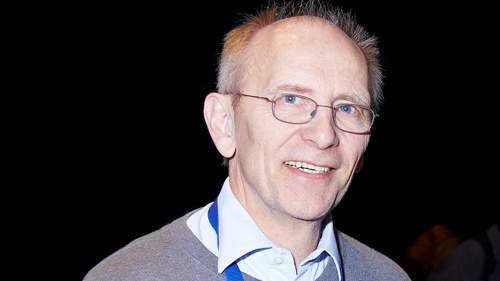
Armin Werner, Group Manager Precision Agriculture
Lincoln Agritech has joined one of the largest research programmes in the world, as a partner in a four-year Horizon Europe project.
Horizon Europe is the European Union’s key funding programme for research and innovation, with a total budget of €95.5 billion (NZ$173 billion) for its ninth seven-year cycle. In 2023 New Zealand became an associated country, meaning our researchers can join to establish and run research projects on equal terms with European partners and receive funding.
Lincoln Agritech has joined universities and research institutions from Greece, Austria, Italy, Belgium, France, and Lithuania on a project to develop a digital system to detect and provide early warning of plant diseases and pests. The Agricultural University of Athens, Greece, is leading the project.
Known as STELLA, the project has a budget of €5m (NZ$9m). It begins next month and finishes in December 2027.
STELLA aims to provide the tools to establish digital monitoring systems for crop and forest diseases and pests, combining data from multiple sources such as remote and proximal sensing and citizen science. These tools can then be used by the EU member states and in New Zealand.
It will focus on pests of arable crops, orchards (apples in New Zealand), vineyards and forests.
Lincoln Agritech is contributing expertise in presymptomatic sensing of fungal diseases and digital decision support. It will also run one of the use case pilot programmes, in Hawkes Bay. This will involve monitoring spores and infections of Neofabraea alba, a fungus that causes bull’s eye rot in apples.
By involving end-users in co-design, the project aims to make the system easy to use for non-experts and training, ensuring it is widely adopted. In New Zealand the project will collaborate with the industry-led Sustainable Food and Fibre Futures project “Smart & Sustainable”. That project is managed by New Zealand Apple & Pears and is now in its second of seven years.
Armin Werner, Lincoln Agritech’s Group Manager of Precision Agriculture, said the ability to join European colleagues on Horizon Europe projects was a welcome step for New Zealand researchers working on global problems.
“Plant diseases cost the global economy more than NZ$360b a year,” he said. “To develop a system that can accept data from multiple sources and detect outbreaks before they become unmanageable will help hugely in global food security.
“Being involved in this and other EU projects with leading European scientists creates synergies that will support New Zealand’s research and development capabilities and success.”


